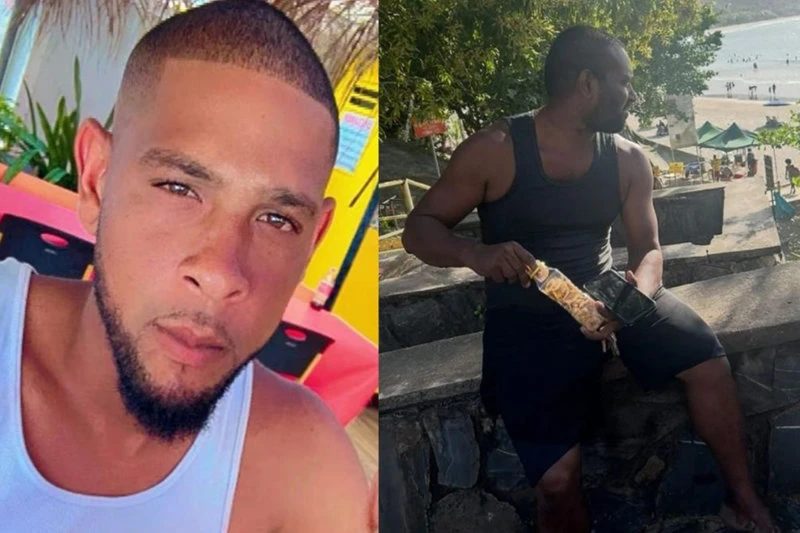Trinidadian Civilians Killed in US Airstrike as Trump Expands Bombing Campaign Near Venezuela

Mexico City, Mexico, October 16, 2025 (venezuelanalysis.com) – The Donald Trump administration is facing international scrutiny after a US airstrike on an alleged drug smuggling ship in the Caribbean reportedly killed two men from Trinidad and Tobago, making the third nationality to fall victim to the US bombing campaign.
While there has been no official confirmation, local media reported that Trinidadian citizens named Chad “Charpo” Joseph and Rishi Samaroo were among those killed during Tuesday’s strike.
The two men from Trinidad and Tobago were among six victims of a US airstrike that destroyed a boat off the coast of Venezuela on Tuesday. Trump said the strike, the fifth confirmed hit since the bombing campaign began in September, was targeting a vessel carrying drugs but did not offer any proof.
Families of the victims said the men were fishermen, not smugglers. Trinidadian outlet CNC3TV spoke to Joseph’s grandmother, Christine Clement, who said that he had been trying to return home after a 3-month stay in nearby Venezuela, but had failed in his efforts.
Clement’s testimony lends credence to the allegations that US forces do not have solid intelligence and are instead targeting boats used for fishing or other activities. The first strike killed 11 people on board, which first raised doubts that it was a drug trafficking boat after experts pointed out the “go fast” boats used to smuggle drugs in the Caribbean usually have smaller crews.
The killings of the Trinidadian nationals follows news that at least one strike targeted Colombian nationals on a boat that had left from Colombia.
Colombian President Gustavo Petro has strongly condemned the US strikes, calling for criminal investigations into Trump and other administration officials involved.
Trinidad and Tobago’s prime minister, Kamla Persad-Bissessar, has openly supported the US bombing campaign in the region, declaring she has “no sympathy for traffickers” and that “the US military should kill them all violently.”
Persad-Bissessar, who took office following a campaign in April promising a hardline approach to crime, made the comments before this latest strike that claimed the lives of two men from Trinidad and Tobago. She has not commented on the latest developments.
Joseph’s mother, Lenore Burnley, told local media that the killing of her son was “wrong and cruel.” Relatives quoted in local media questioned why the boat was not intercepted if there were narcotics smuggling suspicions.
The US bombing campaign, which experts have called a violation of international law, has made fishermen in the targeted area fearful for their lives. Trump has openly mocked them and the risks they face as a result of US military activity.
Gary Aboud, secretary of Fishermen and Friends of the Sea, has recommended Trinidadian fishermen to not stray more than half a mile from the coast to avoid a potential US strike.
Venezuela is separated from Trinidad and Tobago by the Gulf of Paria, a narrow body of water about 11 kilometers at its narrowest point.
Since mid-August, the White House has stationed at least eight warships, aircraft, and an estimated 10,000 troops in the Caribbean in a purported mission against drug smuggling. The US bombing campaign has killed a total of 27 people since September.
Venezuelan President Nicolás Maduro accused the US of seeking to oust his government from power, while analysts claim the true aim of the US anti-narcotics campaign is to put pressure on Maduro to resign.
The Trump administration produced a classified legal opinion that justifies lethal strikes against a secret and expansive list of alleged cartels and drug traffickers. The Center for Constitutional Rights and the American Civil Liberties Union submitted a Freedom of Information Act request Wednesday seeking the Office of Legal Counsel’s guidance and related documents on Trump’s lethal strikes against suspected drug-smuggling operations in the Caribbean.
The White House recently authorized the Central Intelligence Agency to carry out lethal covert operations in Venezuela as part of escalating regime-change efforts against Caracas. Trump himself said he would ramp up the bombing campaign and begin striking targets on land. Maduro has called for dialogue but Washington shut the door to the possibility, suspending all diplomatic contact with Caracas on October 2.
Venezuela called an emergency meeting of the United Nations Security Council to discuss US military threats in the Caribbean. Caracas received strong support from geopolitical allies China and Russia but no resolutions were proposed nor approved.
Venezuela’s Representative to the United Nations Samuel Moncada followed up by formally asking the Security Council to determine that the “extrajudicial executions” being carried out by the US in the Caribbean are illegal and to issue a statement backing the country’s sovereignty.
Edited by Ricardo Vaz in Caracas.
